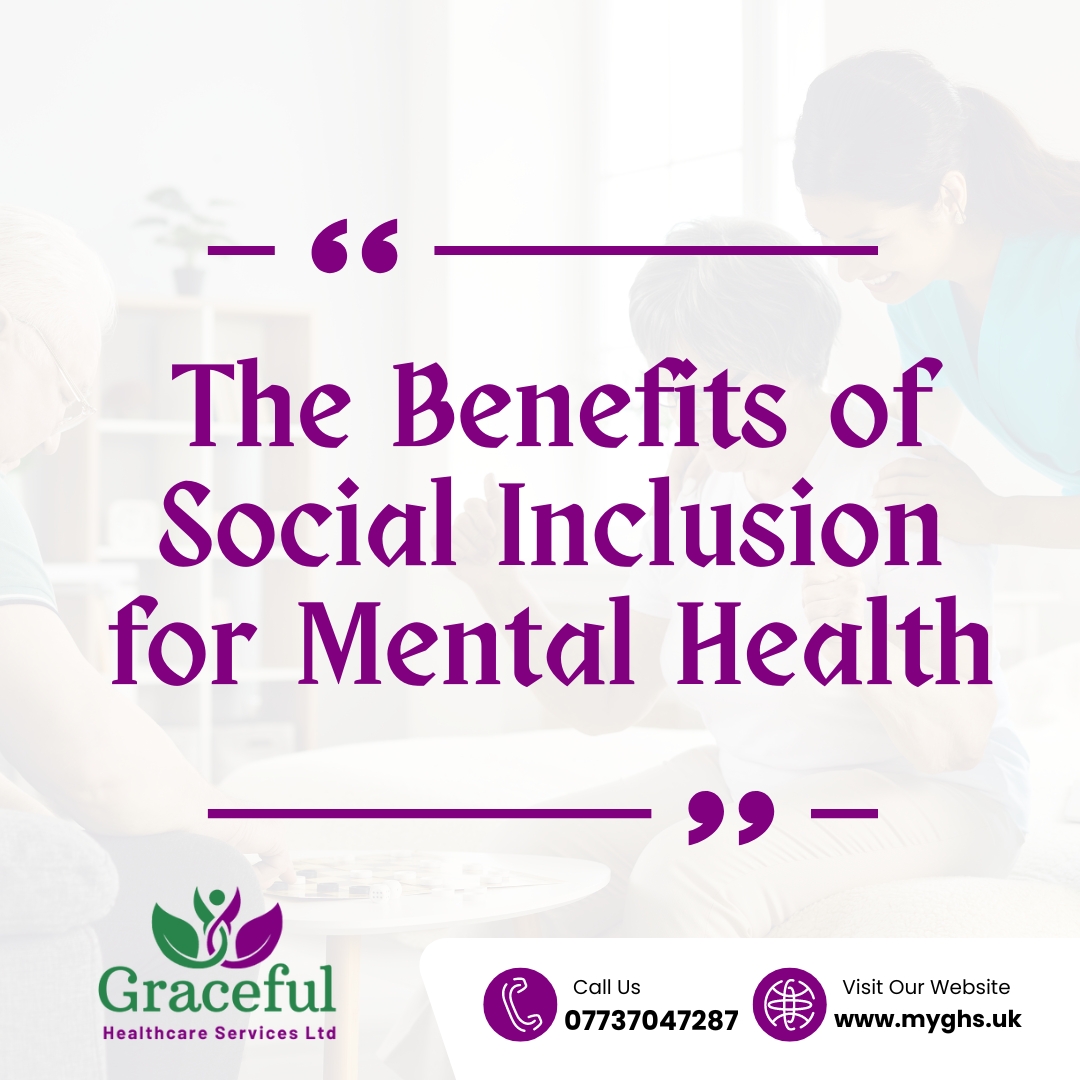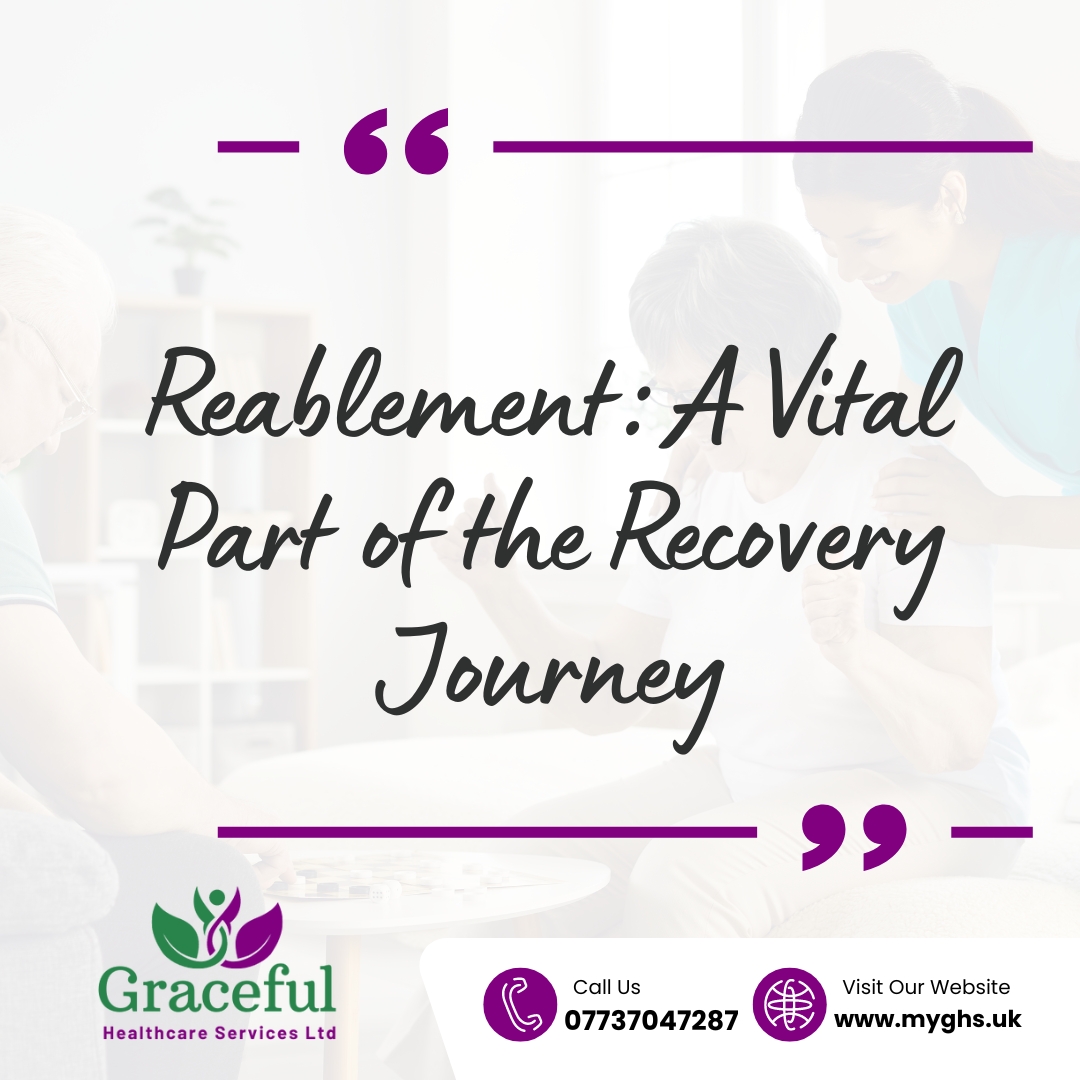Supporting Mental Health Through Supported Living Services

Table of Contents
- Supporting Mental Health Through Supported Living Services
- Understanding the Importance of Supported Living for Mental Health
- Benefits of Supported Living for Individuals with Mental Health Challenges
- How Supported Living Empowers Independence in Mental Health Recovery
- Meeting the Unique Needs of Individuals with Mental Health in Supported Living
- Creating a Safe and Supportive Environment in Supported Living Settings
- Promoting Well-being and Stability Through Supported Living Services
- Enhancing Social Connections and Community Integration in Supported Living
- Addressing Mental Health Challenges Through Individualised Support Plans
- Collaborating with Mental Health Professionals in Supported Living Programs
- Success Stories: Thriving in Supported Living with Mental Health Support
Mental health is a topic that has gained significant attention in recent years. As society becomes more aware of the importance of mental well-being, discussions surrounding mental health services and support have become increasingly prevalent. One particular area of focus within mental health is supported living services. These services aim to provide individuals with the necessary support and resources to improve their mental health and overall quality of life. In this article, we will explore the concept of supported living and how it plays a crucial role in supporting individuals with mental health issues. We will delve into the various aspects of supported living, including the different types of services available and the benefits they offer. Whether you or someone you know is seeking support for mental health challenges, understanding the role of supported living services can be a valuable resource. Let’s take a closer look at how supported living can contribute to enhancing mental health and promoting overall well-being.
Understanding the Importance of Supported Living for Mental Health
When it comes to mental health, having a support system is crucial for individuals to thrive and maintain a balanced lifestyle. That’s where supported living for mental health comes into play. Supported living refers to a model of care that provides individuals with the necessary support to live independently while managing their mental health challenges.
One of the main goals of supported living for mental health is to enhance individuals’ autonomy and sense of belonging. By offering ongoing assistance, guidance, and a safe environment, this approach empowers individuals to lead fulfilling lives and make informed decisions about their mental health care. Whether it involves assistance with medication management, daily activities, or accessing therapy, supported living ensures that individuals have the necessary resources in place to navigate their mental health journey.
Moreover, supported living for mental health promotes social inclusion and helps combat the stigma surrounding mental health issues. By creating a supportive community, individuals feel more accepted and understood. They also have the opportunity to engage in activities and connect with peers who can provide valuable support and encouragement. This sense of community plays a vital role in improving mental well-being and reducing the feelings of isolation and loneliness that often accompany mental health challenges.
Supported living for mental health is an invaluable resource for individuals facing mental health struggles. It offers the support and structure needed for individuals to live their lives to the fullest while managing their mental health conditions. By emphasising autonomy, community, and access to necessary resources, this approach contributes to the overall well-being of individuals and helps break down the barriers associated with mental health.
Benefits of Supported Living for Individuals with Mental Health Challenges

Supported living is a valuable option for individuals with mental health challenges to lead fulfilling lives. This approach provides a supportive and empowering environment that promotes independence and overall well-being. By offering a range of services and resources, supported living aims to enhance the quality of life for those facing mental health issues.
One key benefit of supported living is the provision of a strong support system. Individuals are surrounded by a team of trained professionals who provide guidance, encouragement, and assistance in daily activities. This support helps individuals to develop essential life skills, improve their self-esteem, and foster a sense of belonging within a community.
Moreover, supported living offers a personalised approach to care. Each individual’s unique needs and preferences are taken into consideration to create a tailored support plan. From medication management to therapy sessions, individuals receive the appropriate level of care that aligns with their mental health challenges. This personalised approach ensures that individuals receive the necessary support to thrive and overcome their mental health obstacles.
Another significant advantage of supported living is the emphasis on community integration. Individuals are encouraged to participate in social activities, educational programs, and employment opportunities within their community. This active engagement promotes a sense of purpose, boosts self-confidence, and reduces isolation often experienced by individuals with mental health challenges. It also helps to normalise their experience and reduce societal stigma surrounding mental health.
Supported living offers a range of benefits for individuals facing mental health challenges. Through its support system, personalised approach to care, and focus on community integration, this model provides a nurturing environment that promotes overall well-being and independence. It serves as a valuable resource to help individuals with mental health challenges lead meaningful and fulfilling lives.
How Supported Living Empowers Independence in Mental Health Recovery

Supported living plays a critical role in empowering individuals to regain their independence and promote a successful recovery journey in mental health. This specialised form of assistance provides an inclusive and supportive living environment for individuals with mental health conditions, equipping them with the tools and resources needed to lead fulfilling lives. By offering a range of services and accommodations tailored to individual needs, supported living allows individuals to develop essential life skills while enhancing their self-esteem and confidence.
One of the primary advantages of supported living is the emphasis on individualised care and support. Mental health conditions can vary greatly from person to person, which is why a personalised approach is crucial in promoting recovery. By having access to trained and compassionate staff members who understand the unique challenges faced by individuals with mental health conditions, residents can receive the specialised assistance they need to thrive. Whether it involves developing coping mechanisms, managing medication, or engaging in therapeutic activities, supported living offers an array of resources designed to empower individuals and assist them on their journey to independence.
Moreover, supported living environments promote a sense of community and connection. Mental health conditions can often lead to isolation and feelings of loneliness. By residing in a supportive and nurturing environment, individuals have the opportunity to build relationships with peers who may share similar experiences. This sense of camaraderie can be incredibly powerful in fostering positive mental health and promoting overall well-being. From participating in group activities to attending support groups, residents are provided with countless opportunities to engage with others and develop a support network.
Supported living also plays a vital role in bridging the gap between inpatient treatment and independent living. For those transitioning from hospitalisation or residential treatment programs, the prospect of returning to their previous living situation can be daunting. Supported living provides a safe and structured environment that enables individuals to gradually reintegrate into society while receiving ongoing support. This transitional phase is crucial in ensuring a successful recovery by offering a gradual shift towards independent living, bolstering self-confidence along the way.
In essence, supported living is an invaluable resource in mental health recovery, empowering individuals to reclaim their independence while receiving the necessary support to thrive. From personalised care and individualised assistance to fostering a sense of community, these environments offer a holistic approach to mental health support. By providing residents with the tools, resources, and connections needed to navigate their recovery journey, supported living acts as a catalyst for independence and long-lasting wellness.
Meeting the Unique Needs of Individuals with Mental Health in Supported Living
In today’s society, there is a growing recognition of the importance of mental health and the need for tailored support in every aspect of life. One area that requires particular attention is supported living for individuals with mental health challenges. Providing a safe and nurturing environment that meets the unique needs of these individuals is crucial for their overall well-being and quality of life.
Supported living refers to a model of care that enables individuals with mental health conditions to live independently in their own homes or within a community setting. It offers a range of support services that are specifically designed to address their individual needs, promote their independence, and enhance their social inclusion. This approach recognizes that everyone’s mental health journey is different, and therefore, a one-size-fits-all approach is not suitable.
One of the key elements in meeting the unique needs of individuals with mental health in supported living is the availability of highly trained staff who have expertise in mental health care. These professionals not only provide support but are also equipped to identify early signs of distress and intervene appropriately. Additionally, support is not limited to the physical aspect, but also extends to mental and emotional aspects, including access to therapy, counselling, and other mental health interventions.
Furthermore, a person-centred approach is vital in tailoring the support provided in supported living arrangements, which Graceful Healthcare Services offers. Recognising that individuals have different preferences, interests, and aspirations allows for the development of personalised care plans that empower them to achieve their goals and live fulfilling lives. This person-centred approach involves actively involving the individual in decision-making, promoting their autonomy, and respecting their choices.
Meeting the unique needs of individuals with mental health in supported living requires a comprehensive and holistic approach that takes into account the specific challenges they face. By providing a safe and supportive environment, trained staff, and personalised care plans, individuals with mental health conditions can thrive and lead meaningful lives in their communities. It is our collective responsibility to ensure that their mental health needs are met, and they are offered the support they deserve.
Creating a Safe and Supportive Environment in Supported Living Settings

Supported living settings play a vital role in providing individuals with mental health conditions the support and care they need to lead fulfilling lives. Creating a safe and supportive environment within these settings is crucial for the well-being and recovery of the residents.
First and foremost, it is important to prioritise the physical safety of the residents. The living space should be free from hazards and outfitted with appropriate safety measures. Regular inspections to address any maintenance issues or potential risks should also be conducted. Additionally, staff should receive proper training in emergency procedures to ensure a swift and effective response in case of any crisis.
In addition to physical safety, emotional and psychological support is equally necessary. Staff members should possess empathy and understanding towards the residents’ mental health conditions. Through positive and respectful communication, they can foster a sense of trust and create an atmosphere where residents feel comfortable expressing their emotions and concerns. Providing regular access to mental health professionals, including therapists and counsellors, can also greatly contribute to the residents’ well-being.
Supportive living settings should also prioritise community engagement and social inclusion. Encouraging residents to participate in group activities and fostering a sense of belonging can greatly improve their mental health and overall quality of life. Creating opportunities for residents to engage in hobbies, develop friendships, and partake in community events can enhance their social connections and reduce feelings of isolation.
Overall, creating a safe and supportive environment in supported living settings is essential for the mental health and well-being of residents. It requires a holistic approach that addresses physical safety, emotional support, and social engagement. By prioritising these aspects, individuals with mental health conditions can thrive and lead fulfilling lives within a supported living setting.
Promoting Well-being and Stability Through Supported Living Services
In today’s fast-paced and stressful world, promoting well-being and stability is more important than ever. Many individuals, especially those facing mental health challenges, can benefit greatly from supported living services. These services provide essential support and assistance to individuals who need help with daily activities, social integration, and mental health management.
Supported living services like Graceful Healthcare Services offer a holistic approach to mental health support. They not only focus on meeting individuals’ basic needs but also on empowering them to lead fulfilling and independent lives. With the assistance of trained professionals, individuals can develop essential life skills, such as managing stress, practising self-care, and maintaining healthy relationships.
One of the key advantages of supported living services is the provision of a safe and supportive living environment. This environment offers a sense of stability and security, allowing individuals to focus on their mental health recovery journey. Professionals in these services work closely with individuals, creating personalised care plans and connecting them to appropriate resources and therapies.
Moreover, supported living services promote social integration, which plays a crucial role in overall well-being. Through various activities and community engagement initiatives, individuals are encouraged to build connections, participate in meaningful relationships, and develop a sense of belonging. These social interactions help combat feelings of isolation and enhance mental well-being.
Supported living services are a vital resource for promoting well-being and stability among individuals facing mental health challenges. By providing personalised care, a safe living environment, and opportunities for social integration, these services empower individuals to lead fulfilling lives. Investing in supported living services is an investment in the mental health and overall well-being of individuals in our communities.
Enhancing Social Connections and Community Integration in Supported Living
Social connections and community integration play crucial roles in enhancing the well-being of individuals in supported living, particularly those with mental health challenges. These connections provide a sense of belonging, emotional support, and opportunities for personal growth. Therefore, it is essential to focus on strategies that foster a sense of community and connection among residents.
One way to enhance social connections is by creating communal spaces within supported living environments. These spaces can be designed as gathering areas where residents can interact, engage in group activities, or simply have conversations. By providing these spaces, individuals can form meaningful relationships, share experiences, and feel supported by their peers.
Moreover, organising regular social events and activities can greatly contribute to building social connections. These events can range from group outings to local attractions, participation in community events, or organising movie nights and game sessions. Such activities encourage residents to come together, engage in shared experiences, and foster a sense of belonging within the community.
Additionally, supporting residents in participating in local community activities outside of their supported living environment is crucial for integration. Encouraging individuals to volunteer, join clubs or organisations, or engage in hobbies and interests can help them build connections with people outside of their immediate circle. This not only enhances their social support network but also promotes a sense of participation and acceptance within the wider community.
Enhancing social connections and community integration in supported living is vital for the well-being of individuals with mental health challenges. Creating communal spaces, organising social events, and supporting community participation are all effective strategies to foster a sense of belonging, emotional support, and personal growth. By prioritising these aspects, supported living environments can become thriving communities where individuals can flourish and lead fulfilling lives.
Addressing Mental Health Challenges Through Individualised Support Plans
Mental health challenges can be debilitating and overwhelming for individuals. However, as awareness around mental health continues to increase, so does the focus on providing individualised support plans to cater to each person’s unique needs. Supported living mental health programs have emerged as a valuable approach to address these challenges.
These individualised support plans are rooted in the understanding that mental health affects people differently and that a one-size-fits-all approach does not work. By tailoring support plans to the specific needs of each individual, these programs aim to create a supportive and empowering environment for those struggling with mental health issues.
One of the key benefits of supported living mental health programs is their holistic approach. They take into account a range of factors, including a person’s physical, emotional, social, and environmental needs. Instead of solely focusing on traditional therapy or medication, these support plans incorporate a multidisciplinary approach, combining elements such as counselling, self-care strategies, community involvement, and skill-building activities. By addressing the various aspects of an individual’s life, these programs aim to promote overall well-being and long-term recovery.
Moreover, supported living mental health programs emphasise the importance of fostering independence and self-sufficiency within individuals. They aim to equip individuals with the necessary tools and resources to manage their mental health challenges on their own, while still providing a safety net of support when needed. This approach not only helps individuals feel more in control of their lives but also helps them build resilience and develop coping mechanisms that they can carry with them beyond the program.
Individualised support plans through supported living mental health programs offer a personalised and comprehensive approach to addressing mental health challenges. By tailoring the support to each person’s unique needs, these programs strive to create an empowering environment for individuals to manage their mental health and work towards recovery. With a focus on holistic care, independence, and self-sufficiency, these programs pave the way for a brighter and healthier future for individuals grappling with mental health issues.
Collaborating with Mental Health Professionals in Supported Living Programs

When it comes to supporting individuals with mental health issues in a supported living program, the collaboration between program staff and mental health professionals is paramount. These professionals play a crucial role in ensuring the well-being and success of residents. By working together, they can provide a holistic and comprehensive approach to care.
Supported living programs offer individuals with mental health challenges the opportunity to live independently while receiving the necessary support to thrive. However, the challenges faced by residents can vary greatly, from anxiety and depression to schizophrenia and bipolar disorder. This is where mental health professionals come in, bringing their expertise and specialised knowledge to the table.
Collaboration between staff and mental health professionals involves regular communication, coordination, and sharing of information. This ensures that all aspects of a resident’s well-being are addressed, from medication management to therapy and counselling support. Mental health professionals can provide staff with valuable insights, guidance, and training, enabling them to better support residents in their day-to-day lives.
Additionally, collaborating with mental health professionals enhances the overall quality of care provided in supported living programs. It allows for the development of personalised care plans tailored to each resident’s unique needs. By integrating mental health services into the program, residents can receive timely and effective interventions, leading to improved coping skills, increased stability, and a greater sense of well-being.
Collaborating with mental health professionals is essential in supported living programs. Their expertise, guidance, and support contribute significantly to the well-being and success of residents. By working together, program staff and mental health professionals can provide a comprehensive and holistic approach to care that empowers individuals to live fulfilling lives in a supported environment.
Success Stories: Thriving in Supported Living with Mental Health Support
Living with mental health challenges can be a difficult journey, but with the right support and resources, individuals can thrive in a supported living environment. Success stories of those who have found stability, growth, and empowerment in supported living with mental health support offer hope and inspiration to others facing similar struggles.
Supported living provides a safe and nurturing space for individuals with mental health conditions to live independently while receiving the necessary assistance and companionship. Through personalised care plans and access to a range of support services, individuals can develop essential skills, such as managing daily routines, maintaining personal hygiene, and engaging in social activities. This holistic approach enables individuals to regain their confidence, restore their sense of self-worth, and rebuild a fulfilling life. Let’s take a look at two hypothetical success stories from Graceful Healthcare Services .
One success story of thriving in supported living with mental health support involves Client A, who struggled with severe depression and anxiety for years. After transitioning into a supported living program, she began to receive the therapy, medication management, and social support she needed to navigate her daily life. With regular counselling sessions, Client A developed coping strategies to effectively manage her emotions and improve her overall mental well-being.
Another inspiring success story involves Client B, who battled with schizophrenia. With the assistance of a support team that included psychiatric practitioners, vocational trainers, and mindfulness coaches in his supported living environment, Client B successfully integrated into society by securing employment and building healthy relationships. Through ongoing support and personalised treatment plans, he gained the skills necessary to sustain his independence and actively participate in his community.
These success stories demonstrate that with the right resources, individuals living with mental illness can overcome their challenges and thrive in a supported living environment. It is a testament to the importance of mental health support services, which empower individuals to regain control of their lives, fostering personal growth, and achieving their goals. By sharing these stories, we can raise awareness and encourage others to seek the support they need to embark on their own journey towards success and mental well-being.
Disclaimer: This article is intended for informational purposes only and does not constitute medical advice or professional care recommendations. The information provided is based on current research and best practices at the time of writing. Readers should consult with healthcare professionals, qualified care providers, or local authorities before making decisions about any form of care. While efforts have been made to ensure accuracy, Graceful Healthcare Services Ltd and the author do not guarantee the completeness or currency of the information presented. Individual circumstances may vary, and personalised advice should always be sought.






Leave a Reply